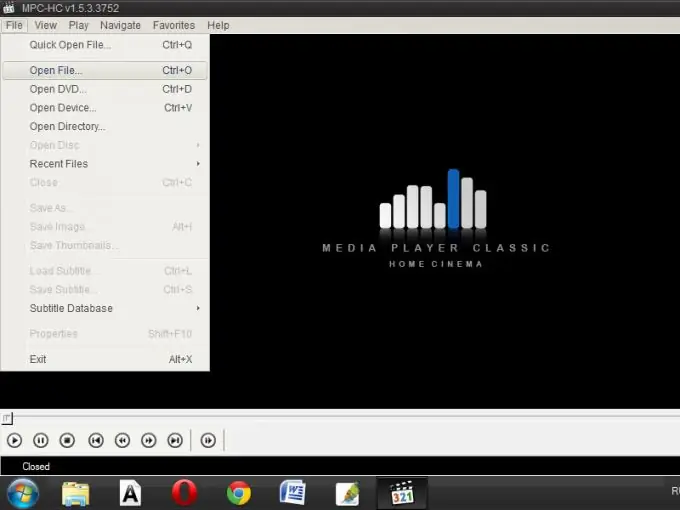Playing an audio or video file in a media player - it would seem, what could be easier? Launch the player, open the desired file in it and that's it: watch and / or listen. But in practice, the user is often in for an unpleasant surprise: the player does not show the picture or, on the contrary, some kind of nonsense occurs with the sound, or the file does not open at all, and the system begins to require the installation of some kind of codec. You should also know what codecs are and why they are needed at all.

Digital technologies are called so because all information, including media files, is stored as a sequence of numbers - codes. Your computer's player cannot reproduce this sequence correctly without prompting. The codec gives this hint to the player.
The very name "codec" comes from the merger of the first syllables of two English words: coder and decoder (co + dec = codec). The meaning of these words is clear without translation. Encoding and subsequent decoding of multimedia files is the function of codecs. The digital sequence is converted into a form that is understandable for the player, and the player, in turn, reproduces it all "in a format" that is understandable for the eyes and ears of a person.
Why are such manipulations needed?
For transferring and storing files. Multimedia, especially movies in high quality, even after compression by the codec "weigh" a lot. Without encoding, the file size will be even larger. Of course, now you will not surprise anyone with unlimited Internet and physical media with a capacity of tens and hundreds of GB, but no matter how large your hard drive is, it is still not infinite. And since there is no significant loss in the quality of audio / video files during encoding / decoding, the use of such technologies is justified.
What codec to install and where to get it
These technologies have not existed for the first day, and many codecs have been developed during this time. It is not easy to correctly determine which of them is needed for a particular file, even for a person who is well versed in these issues. If you are far from all these digital subtleties at all, the task becomes almost impossible. But you shouldn't despair. After all, it is not at all necessary to install the codec files separately - you can download a whole universal package at once.
The most popular codec pack is the K-Lite Codec Pack. It comes in four flavors: Basic, Full, Standard and Mega. Moreover, when installing any of these options, you will be prompted to select the necessary components yourself. The codec pack is regularly updated and you can download it absolutely free from the Codec Guide website
If you do not know exactly which codecs you need and which ones you don't, install the standard version of the codec pack and leave all the default checkboxes untouched in the component selection window. Or, on the contrary, play it safe and choose the download to the maximum - Mega or Full package - and tick all the boxes. In addition to codecs, the package also includes Media Player Classic - an uncomplicated but versatile multimedia player, which would be useful to have in your arsenal.
After the installation process is complete, you will not have to do any more manipulations with the codec pack - the media players on your computer will "figure it out" with it themselves. Now, to play video and audio, you really just need to start your player and open the desired file in it.






